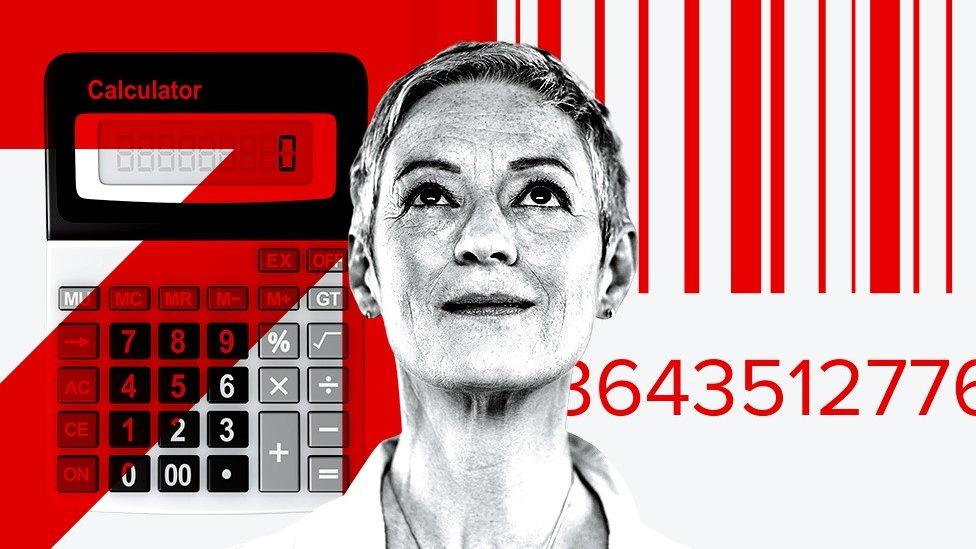North East charities warn energy bill rise will 'cause challenges'
- Published
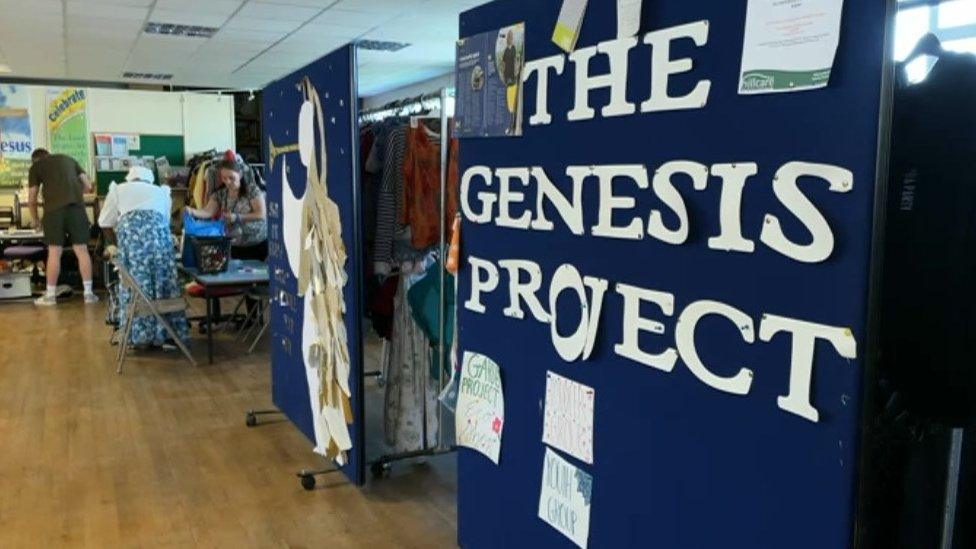
Foodbank officials at the Genesis Project at Saint Oswalds Church in Middlesbrough said they would have to make difficult choices
The rise in energy bills is going to cause enormous challenges for many people, with some having to choose between heating and eating, charities across the North East have warned.
A representative from one said her "hair was on end thinking about the challenges some people will face".
Citizens Advice Gateshead described itself as "staggeringly busy" already.
And a food bank on Teesside is set to cut down on its own heating and will ask volunteers to wear a coat indoors.
Households are facing a jump in energy prices from October when the typical bill will rise to £3,549 a year.
The Genesis Project, which is based at Saint Oswalds Church in Middlesbrough, said many people using its service had told them they were going to have to make some difficult choices.
Shaun Sedgwick, from the charity, said: "They'll put the heating on and have a sandwich instead of something cooked.
"Heat or eat, and sometimes it'll be eat, and sometimes heat."
The organisation said it was also facing its own problems as lighting and heating the building was also expensive, especially in winter, and added a rise in those costs would be difficult to find.
Mr Sedgwick said: "We're going to have to find another way of keeping warm... put an extra jumper on, or a hat or even gloves."
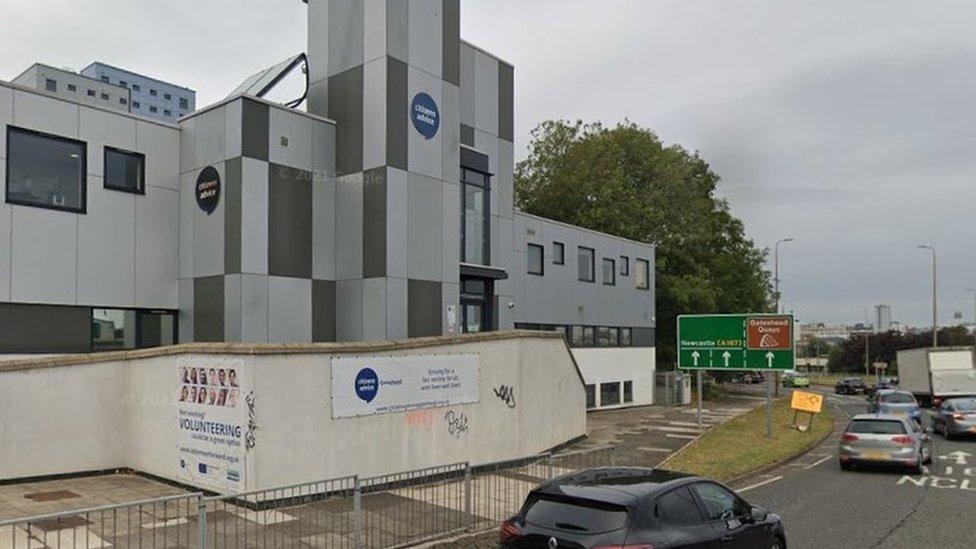
Citizens Advice in Gateshead says it has been inundated with calls from people worried about the cost of living
Alison Green from the Wise Group - a social enterprise that works to lift people out of poverty - said: "I'm concerned about vulnerable people being lured into crime and mums possibly turning to sex work to feed their kids, to feed children.
"The impact of this if someone has to get a handle on this quickly, it will spiral and we will find a lot of people making very difficult decisions and perhaps not the right ones."
She added: "My hairs are on end thinking about the challenges some people are going to face."
'Not able to afford'
Citizens Advice in Gateshead said it had already been contacted by more people this year than in the whole of last year.
Alison Dunn, from the organisation, said: "We estimate that nationally as many as 18 million households will not be able to afford their essential living expenses by January."
The government said it was supporting people with at least £1,200 of direct payments.
A spokesperson said: "The total cost of the support package is £37bn and will save the typical employee more than £330 a year via a tax cut.
"People on Universal Credit will keep £1,000 more of what they earn, while all households will receive £400 energy payments."
Energy bills: What do I do if I can't afford to pay?
When are the second cost-of-living payment and £400 energy rebate due?

Follow BBC North East & Cumbria on Twitter, external, Facebook, external and Instagram, external. Send your story ideas to northeastandcumbria@bbc.co.uk, external.
Related topics
- Published26 August 2022
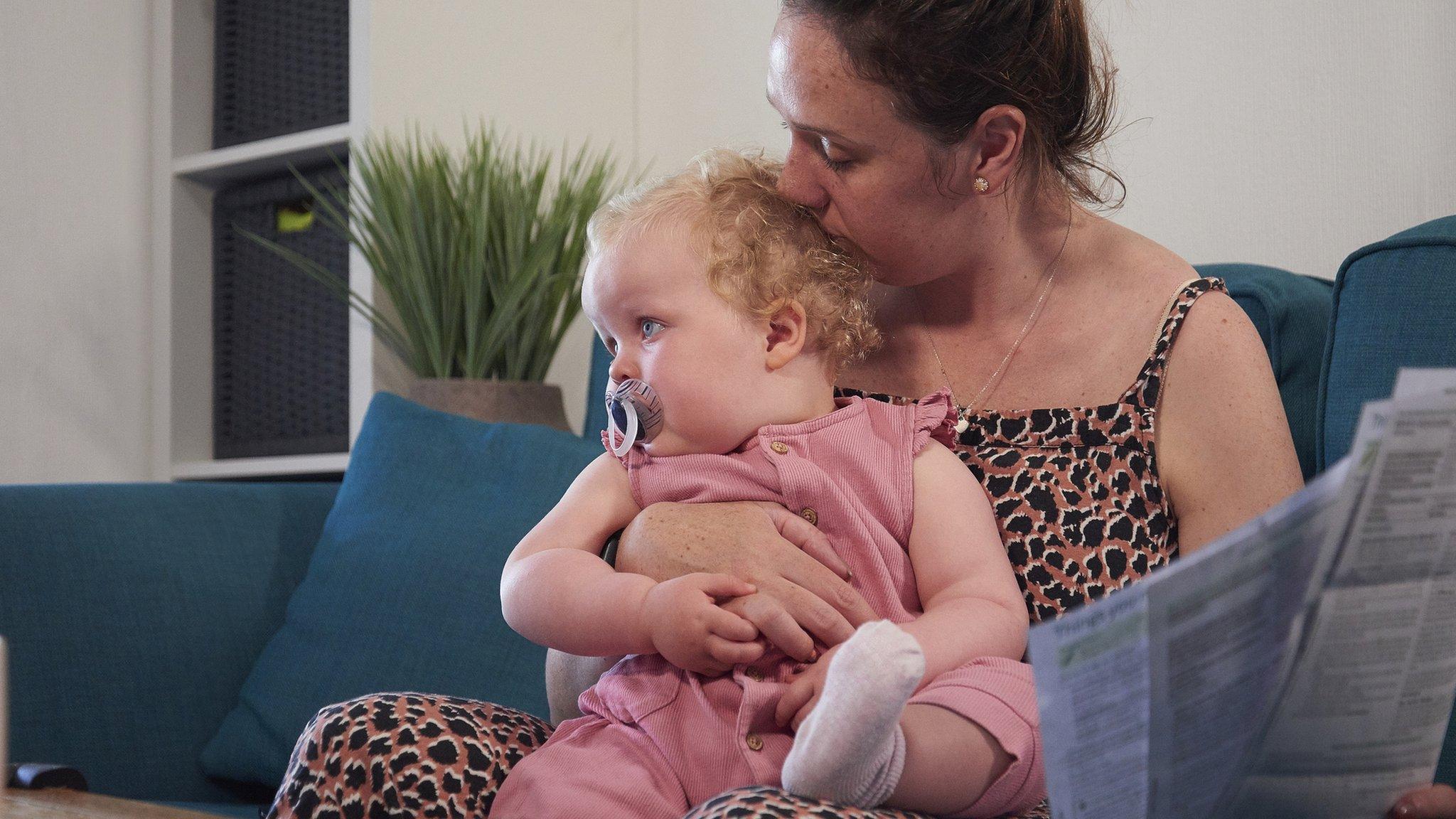
- Published26 August 2022
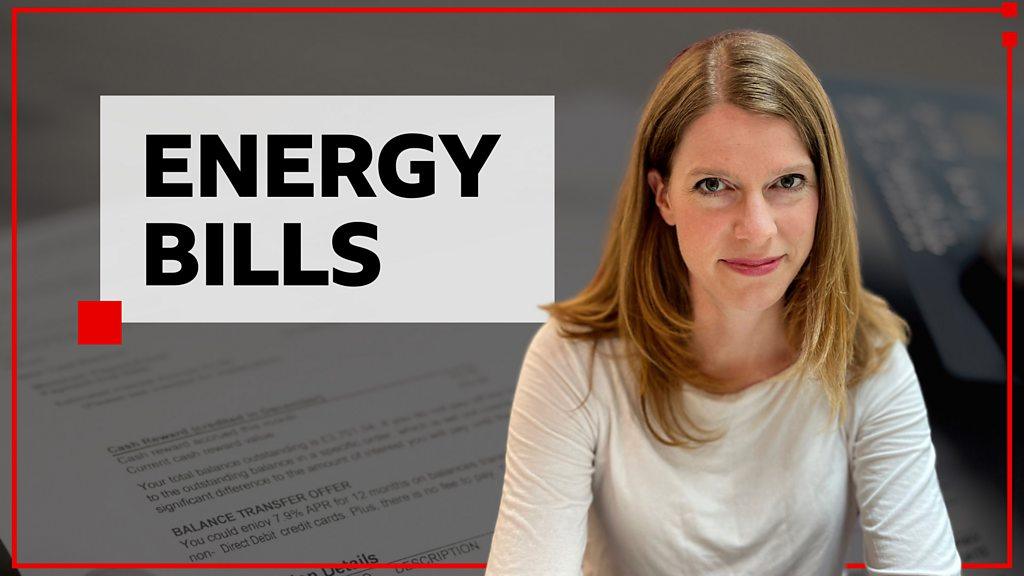
- Published26 August 2022

- Published24 August 2022
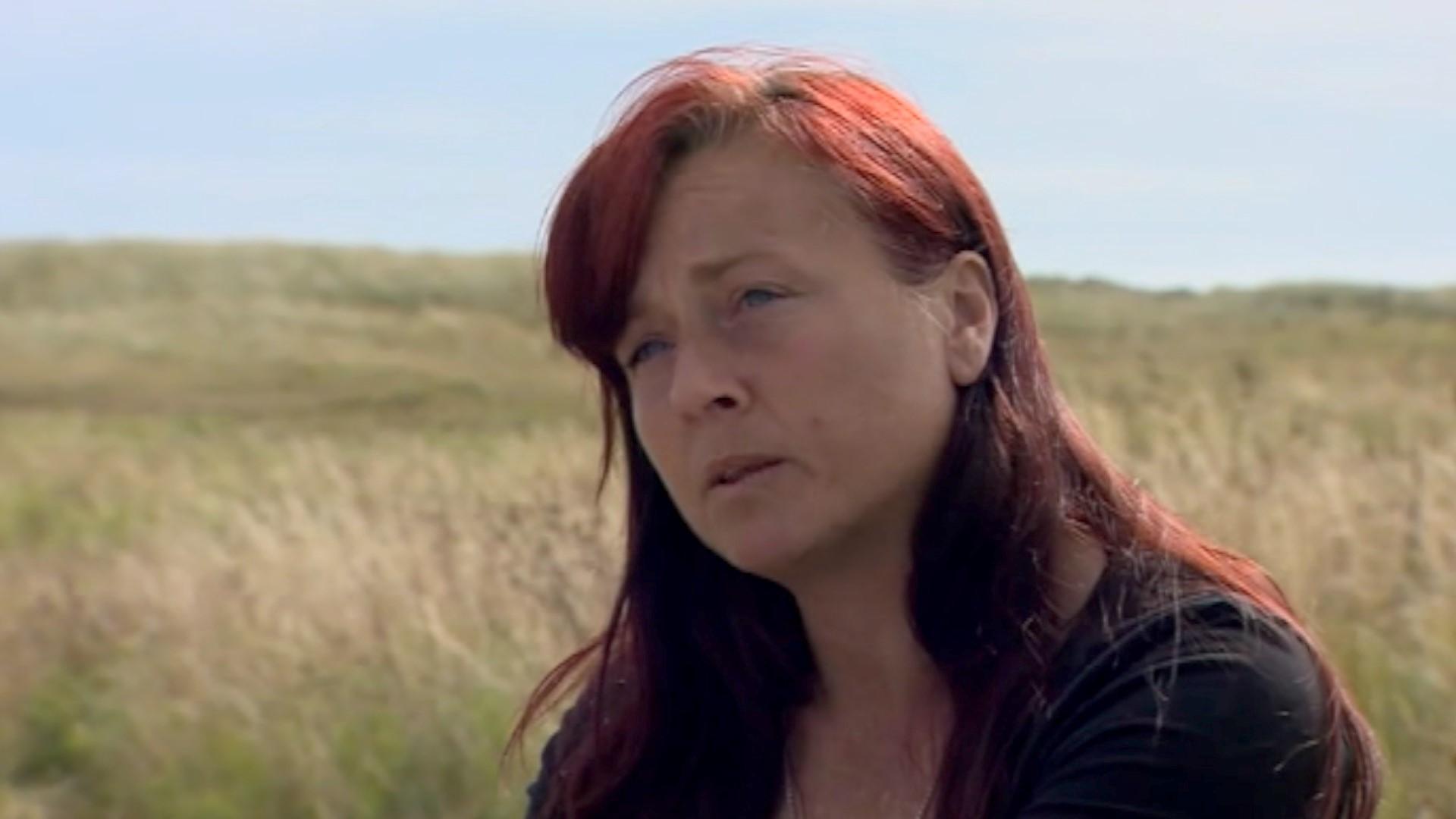
- Published17 July 2024
